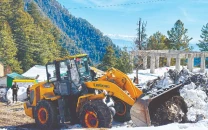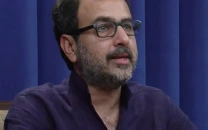Uniform dangers

It is the ability to reason, to think, to use the capacity of the mind in many different ways which sets humans apart from animals.
As a nation Pakistan is locked in a desperate struggle to preserve this. The policies adopted by regimes in the past have built a philosophy which makes us reluctant to question, to challenge or to stand up for our basic right to free thought. Unless a struggle begins to drive back those who attempt to steal away these freedoms, we will all be crushed under their weight, unable to fight back or even take in a breath of fresh air. It is now, more than ever, that we need our Sufi saints, we need their wide vision, their basic humanity — and this of course is the reason these men of peace have come under such fierce attack from those who seek to impose an orthodox order on us all. This means, in fact it necessarily implies, that each one of us stand up to this danger and resist it with all the resources at our disposal, for if we don’t then our very way of life would be permanently altered by a group which sees nothing wrong in using force to compel others to live a certain way.
What is still more terrifying is the pretence that we do not know who is responsible. Astonishingly, even now, we hear people say that the US is behind the attacks; that it is an attempt to discredit Pakistan by its ‘enemies’ and that no Muslim could be behind the bombing of a shrine. Do they genuinely believe this? Or have we become so accustomed to telling ourselves lies that it has become harder and harder for some to see what is true. This refusal to face up to the harsh realities of what life in Pakistan has become is indeed one reason why we live in such peril. Had our politicians, our religious leaders and others with influence spoken out more strongly before and unequivocally condemned militancy, we may today have been spared the situation we face.
If we are to escape it, we need to embrace the differences within our country, the varying schools of belief, the wide range of thoughts and languages, much more whole-heartedly. The attempts to prevent them from flourishing have gained pace in recent years. Writers have been murdered in the north for penning words that go against the militant creed. Musicians have been hounded out of their homes. The onslaught against the Sufis is just the latest chapter in this campaign. If we are to save our country, we need to save its Sufi tradition and the lifestyle that goes along with it. On a more practical note we also need to lobby the government to inject a healthy dose of tolerance and respect for other non-mainstream cultures and faiths in the mainstream educational curriculum.
Published in The Express Tribune, July 4th, 2010



















COMMENTS
Comments are moderated and generally will be posted if they are on-topic and not abusive.
For more information, please see our Comments FAQ